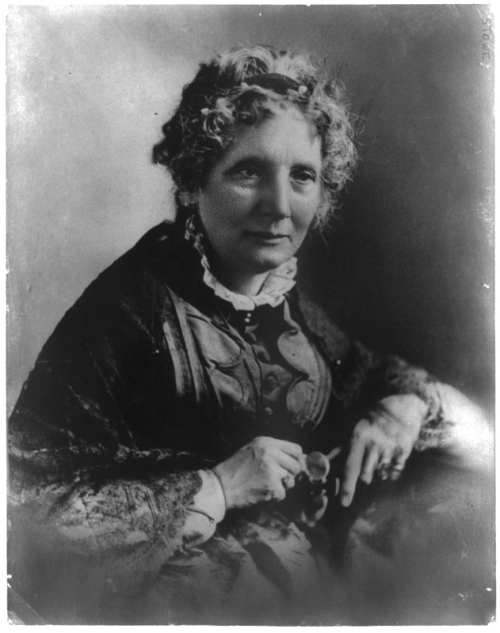Harriet Beecher Stowe
b. 1811, Litchfield, Connecticut; d. 1896, Hartford, Connecticut
Uncle Tom’s Cabin inspired President Lincoln’s remark that Harriet Beecher Stowe was “the little lady who made the big war.” Born into the remarkable Beecher family of Connecticut, Harriet settled with her father and sister, Catherine, in Cincinnati in 1832. There she observed the workings of slavery in the Kentucky communities directly across the Ohio River. When she and her husband, biblical scholar Calvin Stowe, moved to Brunswick, Maine, in 1850, Harriet set to work on the book that would irrevocably alter perceptions of slavery in America. Initially serialized in The National Era in 1851–52, Uncle Tom’s Cabin became the bible of the abolitionist movement and made Stowe an international celebrity. Based on various slaves narratives, as well as Stowe’s personal encounters with fugitive slaves in Ohio, the book sold 300,000 copies within the year. In response to allegations of distorting fact, she published corroborating documents and testimonies in A Key to Uncle Tom’s Cabin in 1853. Over the next four decades, she wrote several other novels and dozens of essays and stories, but none would match the success of Uncle Tom’s Cabin. Combining elements of the political tract and the sentimental novel, it appeared at a crucial juncture in the antislavery struggle, when northern abolitionists were still seething over passage of the Fugitive Slave Act (1850), which mandated free states’ complicity in returning runaway slaves to their southern owners. Recent critical assessments find the text problematic for its stereotyped depictions of blacks, but it performed admirably in its time as a piece of interventionist fiction and inspired narratives by other authors such as Frances Harper.

Unknown artist. Harriet Beecher Stowe, circa 1880. Library of Congress, Prints and Photographs Division, Washington, D.C.